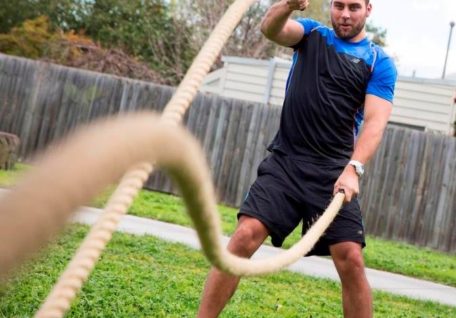During 2013-14, revenue for gyms and fitness centres grew by 1.4 per cent to hit AU$1.3 billion, according to a report by IBISWorld. The same source states that gym memberships and desire for personal trainers tends to spike around January and February, with Australians looking to burn off the excesses of the holidays in a burst of enthusiasm to get fit – often fuelled by a New Year's resolution.
Alongside quitting smoking, saving money and eating more healthily, getting fit is one of the most popular New Year's Resolutions among Australians, state IBIS World. So, with a slew of new faces set to appear running the streets and in gyms up and down the country, many will be looking for the right guide to help them reach their fitness goals. With such a number of people looking for assistance, it can pay to make sure that you are that person – but even as a qualified Personal Trainer with a Certificate III & IV in Fitness or a Diploma in Fitness and extra study in nutrition, how can you make yourself stand out from the crowd?
Show that you are patient
Each time January rolls around, with promises to themselves made, many people will be experiencing the world of fitness and exercise for the first time. This means that they are likely to be unsure of correct form, what each exercise does, and how it will benefit them overall. That's why you offer the service you do – to educate, instruct, transform, inspire and motivate! Therefore, it is of paramount importance that you show a deep level of patience with each of your clients, both existing and new. Good patience will help you build a strong client/personal trainer relationship, and that can only lead to extended or repeat business.
Gym memberships and desire for personal trainers tends to spike around January and February.
It is vital that you understand that training techniques which work perfectly for one client may do nothing for another. It's in situations like this where you can demonstrate your patience by discovering what does actually work for a new client's fitness and enjoyment.
Honesty is the best policy
It's of massive importance that a client can put complete trust in their personal trainer, so fostering a strong reputation for honesty will go a long way when a potential customer is doing his or her research. Being honest and helping your client to set achievable goals is very important, don't promise them the world when you know they simply will not achieve it. Be honest, set more manageable goals and ask them to prove you wrong. Setting unachievable goals will only lower your clients' morale when it is blindingly obvious that little is happening and they remain far from achieving them. It can take people new to exercise a while to realise that achieving their weight loss or fitness goals takes time and dedication, so don't make it harder by setting unachievable goals at the beginning just to try and make them happy.

Hence, being honest with your clients will always work out for the best for everyone involved. There is no need to be rude, or even blunt about a person's problem areas and shortcomings. All you have to do is use a little subtlety, be gentle with your comments (especially if working with someone of a sensitive disposition) and keep going. A client will always choose someone that has the courage to tell someone where they are going wrong.
Professionalism and attitude
No one wants to pay good money to someone that they think doesn't quite take their occupation seriously enough, or is a person that they simply don't want to spend time with. It can be difficult to strike the right balance between making sure that your client is making steady progress, but also not being a repetitive bore or, conversely, an overly enthusiastic drill sergeant type. Finding this balance will mark you out as a personal trainer who cares deeply about their career – which means that they care about their clients, too.






